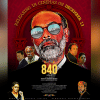Farooki demands reform in censorship system

Acclaimed filmmaker Mostofa Sarwar Farooki has called for the complete reform of Bangladesh's film censorship system, insisting that outdated policies be replaced by a more contemporary rating system. His demand comes amid growing frustration in the industry, particularly after his own film "Saturday Afternoon" remains blocked by censors for reasons still undisclosed.
Farooki, known for his bold commentary, took to social media to voice his discontent. "Do we want films about the BDR mutiny? The atrocities committed by the Rakkhi Bahini after the Liberation War? Or the disappearances orchestrated by Hasina, Ziaul, and Tareq Siddiqui?" he asked. His series of provocative questions highlighted what he views as the censorship board's role in stifling critical narratives, particularly those that challenge the ruling Awami League's version of history.

He contended that the current system enables the government to silence filmmakers, particularly those with critical or dissenting voices. Instead of censorship, Farooki argued for a rating system that classifies films according to their suitability for different audiences, such as adults or parental guidance.
Farooki acknowledged potential concerns, especially regarding films that might misrepresent historical figures like Bangabandhu or Ziaur Rahman. However, he argued that specific guidelines could prevent such issues without suppressing filmmakers' freedom to challenge historical narratives. "Safeguards can be set, but not at the cost of stifling creativity," he asserted.
In a pointed critique, Farooki recalled a meeting with former state minister Mohammad Ali Arafat, where Arafat appeared supportive of reform. However, after gaining power, the former government instead introduced stricter regulations for OTT platforms. "The goal was clear: tighten the noose on filmmakers so they can't criticised those in power," Farooki stated.
He also proposed immediate changes, such as restructuring the censorship board to exclude outdated figures from the FDC, whom he accused of harboring envy towards the new generation of filmmakers. Farooki urged for more sensible appointments and criticised the current grant committee for serving political agendas.

 For all latest news, follow The Daily Star's Google News channel.
For all latest news, follow The Daily Star's Google News channel. 









Comments